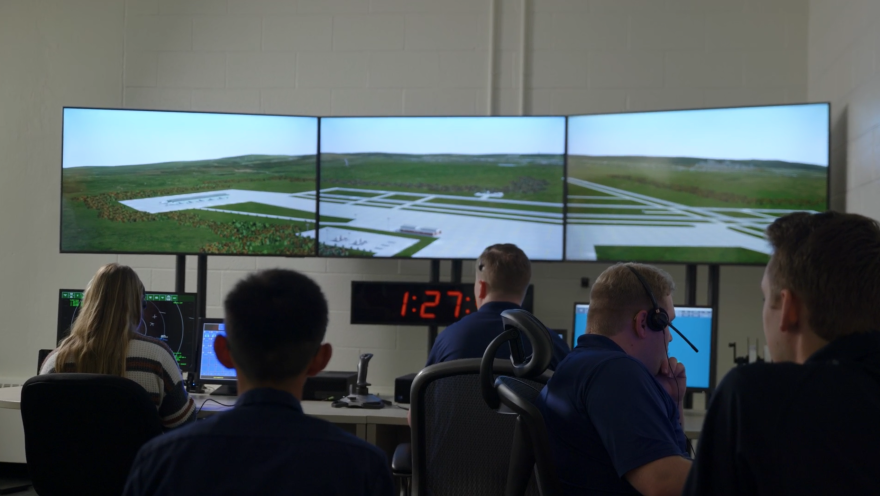The US Federal Aviation Administration (FAA) has experienced chronic shortages of air traffic controllers since at least 2015. These controllers play a critical role in providing service to 44,000 flights per day. Controller shortages have only worsened with the government shutdown.
Last week the agency announced it would be implementing flight reductions at 40 airports across the country, including Salt Lake City.
Aaron Whittle, the assistant professor of practice in aviation and technical education at Utah State University, teaches classes for Utah’s only air traffic control minor.
“We've had four individuals get accepted by the FAA that are currently in the process of becoming air traffic controllers,” Whittle said.
While not the initial goal, he hopes to contribute to increasing the number of air traffic controllers.
“If we can provide, in this sense, an asset to the FAA by developing air traffic controllers and providing that interest," Whittle said. "Because I don't think a lot of people know how to become an air traffic controller. It's kind of an elusive career, and so by highlighting it and making these students aware of it, we're finding more and more that are interested in the program.”
The program has increased in enrollment from 30 to 160 students since it was first offered last year. In addition to continuing student interest, Whittle hopes to become a collegiate training initiative school, which partners the USU program with the Federal Aviation Administration.
“Hopefully, we'll become a CTI certified school that enables our students to be able to get it, gives them a little bump up in trying to get on with the FAA,” Whittle said.



